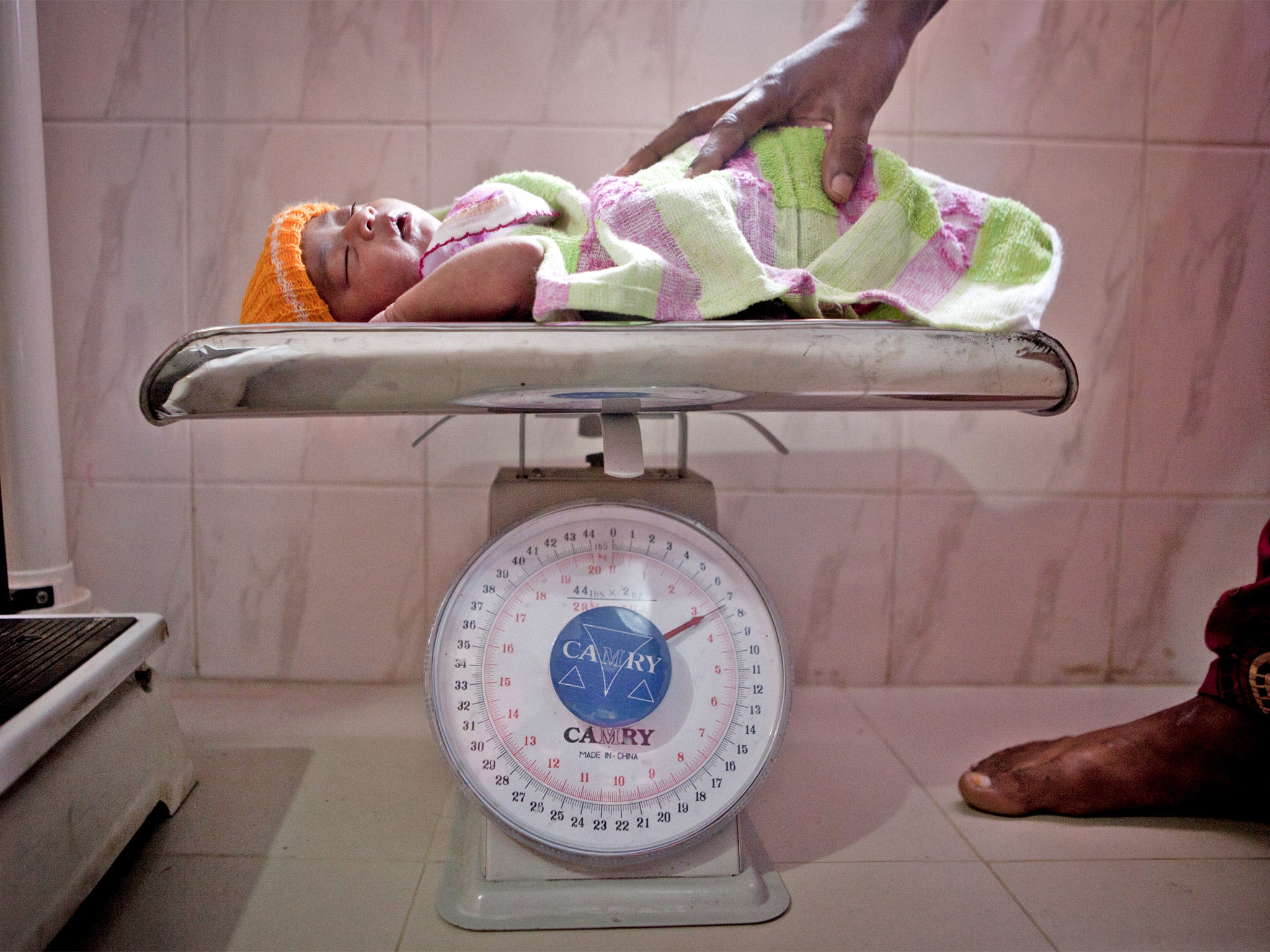Global shortage of 900,000 midwives fuelling preventable deaths of mothers and babies, report warns
‘In many cultures, midwifery is dismissed because of its gendered nature: a profession staffed predominantly by women, for women,’ says expert

Your support helps us to tell the story
From reproductive rights to climate change to Big Tech, The Independent is on the ground when the story is developing. Whether it's investigating the financials of Elon Musk's pro-Trump PAC or producing our latest documentary, 'The A Word', which shines a light on the American women fighting for reproductive rights, we know how important it is to parse out the facts from the messaging.
At such a critical moment in US history, we need reporters on the ground. Your donation allows us to keep sending journalists to speak to both sides of the story.
The Independent is trusted by Americans across the entire political spectrum. And unlike many other quality news outlets, we choose not to lock Americans out of our reporting and analysis with paywalls. We believe quality journalism should be available to everyone, paid for by those who can afford it.
Your support makes all the difference.A global shortage of 900,000 midwives is fuelling preventable deaths of mothers and babies, a new report has found.
The study, by the World Health Organisation and the United Nations, warned the “acute” shortage is equivalent to nearly half of the 1.9 million currently working across the world.
Researchers warned proper investment in midwives by 2035 would stop approximately two thirds of maternal, newborn deaths and stillbirths and ultimately save 4.3 million lives each year.
The report, which examines the midwifery workforce and relevant health resources in 194 nations, warned the coronavirus pandemic has compounded pre-existing issues with women and babies “being overshadowed” as Covid unleashes chaos on health services.
Midwifery services have faced heavy disruption and midwives have been deployed to fight on the frontlines of the Covid emergency.
Dr Franka Cadee, president of the International Confederation of Midwives, also involved in the research, said: “Midwives are continually overlooked and ignored. It’s time for governments to acknowledge the evidence surrounding the life-promoting, life-saving impact of midwife-led care.”
She added: “In many cultures, midwifery is dismissed because of its gendered nature: a profession staffed predominantly by women, for women.
Dr Cadee noted we live in an era where healthcare structures “perch on the shoulders of a predominantly female workforce” at all stages apart from the “highest tier of the hierarchy – doctors – where the gender balance inverts.”
Some 93 per cent of midwives and 89 per cent of nurses are women, researchers said, adding that midwives also deliver a variety of sexual and reproductive health services.
Dr Natalia Kanem, executive director of United Nations Population Fund, noted the report, “sounds the alarm” the world currently “urgently” requires 1.1 million more essential health workers to provide “sexual, reproductive, maternal, newborn and adolescent health care”.
“And 80 per cent of these missing essential health workers are midwives,” she added. “A capable, well-trained midwife can have an enormous impact on childbearing women and their families – an impact often passed on from one generation to the next.”
Researchers warned it is ultimately gender inequality which is an overlooked root cause of the profound shortage of midwives and chronic issues with underfunding. The report, released on International Day of the Midwife, states healthcare structures overlook the sexual and reproductive requirements of women.
Dr Tedros Adhanom Ghebreyesus, director general of the World Health Organisation, said: “Midwives play a vital role in reducing the risks of childbirth for women all over the world.
“This report provides the data and evidence to support the World Health Organisation’s longstanding call to strengthen the midwifery workforce, which will deliver a triple dividend in contributing to better health, gender equality and inclusive economic growth.”
Shelly Chitsungo a former midwife, previously raised concerns over the coronavirus pandemic wreaking havoc on Zimbabwe’s maternity services as she warned mothers-to-be will die if services are overwhelmed.
“If the woman ruptures the uterus, she will bleed to death and lose the baby,” Ms Chitsungo, who has delivered almost a thousand babies in Zimbabwe and now works as Unicef Zimbabwe’s health specialist, told The Independent last summer. “That has happened many times in Zimbabwe. I’ve seen this happen.”
In the UK, healthcare leaders have warned maternity services are at risk because demoralised midwives are planning to quit the NHS.
The Independent recently reported on a study, carried out by the Institute for Public Policy Research, which suggests 8,000 midwives may depart due to the “unprecedented pressure” of the coronavirus pandemic.
Researchers, who surveyed about 1,000 healthcare professionals from around the country in mid-February, discovered that two-thirds reported being mentally exhausted once a week or more.
While one-quarter said they used alcohol or drugs or both to cope with their stress weekly or more regularly, and 5 per cent of workers, which could equate to 80,000 staff, said they thought about suicide or self-harm once a week or more.
An estimated 2.8 million pregnant women and newborns die every year – with one dying every 11 seconds due to factors which were generally preventable – around the world prior to the Covid-19 outbreak.

Join our commenting forum
Join thought-provoking conversations, follow other Independent readers and see their replies
Comments